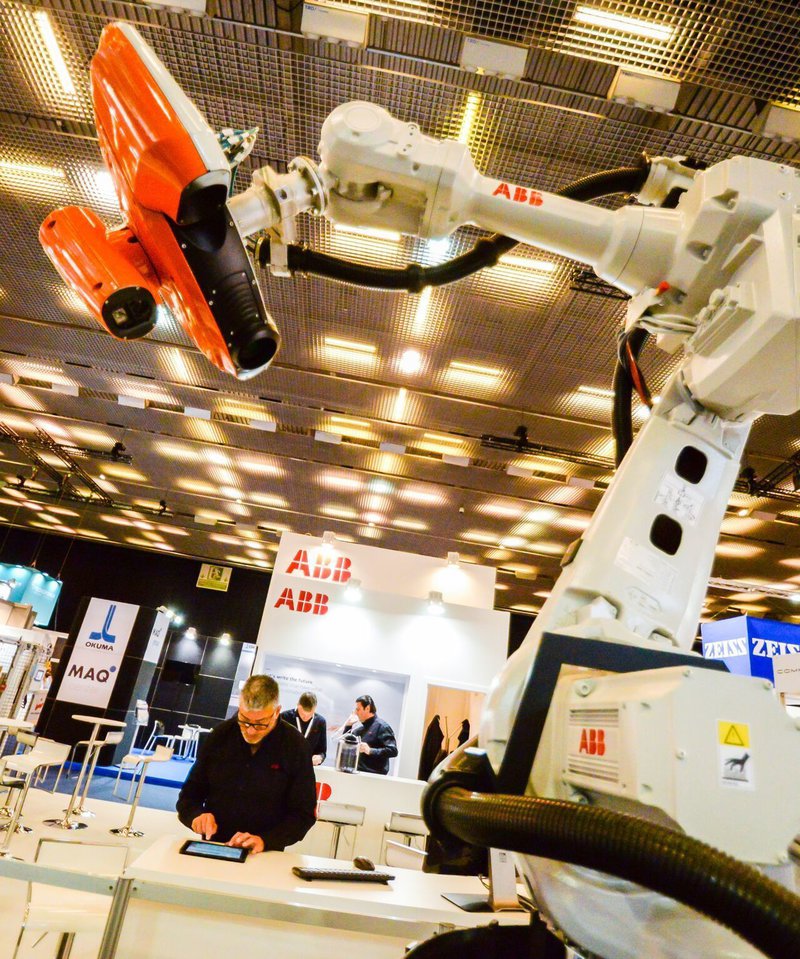Joan Guasch
Are robots harmless?
“We need to rethink things ranging from finance structures through to intellectual property”
Experts talk of the inevitability of robotics, tell us not to worry so much about them and advise us to simply “deal with it”. Some are not so convinced
Back in the 1940s Isaac Asimov came up with the three mythical laws of robotics, the last of which clearly states that robots must obey and respect human life above all else. Perhaps we have not seen the need to apply that criteria from science fiction just yet, but it could be time for us to pay closer attention as according to economists, engineers and industrialists, whatever happens, robotics, at least in industry, is now here to stay.
And this is not just some gimmick about Deep Blue beating Kasparov at chess. What we are talking about is, for example, something like Fastbrick Robotics, which has produced a device capable of laying a thousand bricks an hour in building a house exactly where the plans say, or a three-dimensional printer capable of manufacturing a totally personalised prosthesis for a patient, or a drone delivering a product purchased online to its destination.
It is inevitable, says Max Lemke, head of the Innovation in the Digital Industry Unit of the European Commission, who urges us to “deal with it” and not to “worry about it”.
For some time now there have been regular references in the news media to the UNCTAD study, which assures us that robots could pose a risk to up to two thirds of jobs in developing countries, with these places then losing their current attraction as providers of cheap labour. As for developed countries, things are not so clear.
While for many the new industrial revolution will contribute to relocation of industry in the country of origin, others see more dangers. A few months ago, a US presidential inquiry warned that artificial intelligence could threaten up to 47% of the jobs in US industry.
Despite all of this, Lemke still insists we should not panic. The digital transformation will change our lives, the European observer believes. In his opinion, “every company in Europe, large or small, every country or sector has to start thinking about the significance of this transformation, which is not limited to using robots or uploading data to the cloud. It's much deeper than that.”
He uses an example: “At present, we buy shoes made in China, but very soon we will go to the shoe store, where we will be able to have custom-made designer shoes made to the exact dimensions of our feet, choose the colour and features that we prefer, and have them made in the workshop out the back!” It is, therefore, a new paradigm, which “is the sum of partial changes that will occur over the next 10 years.”
Sector by sector
In the academic world, José García Montalvo, Professor of Applied Economics at the Universitat Pompeu Fabra, believes, however, that the process will be slower than some think. “There will be advances, most certainly, but much will depend on the particular sector and these robots in principle will be given routine tasks, as we saw what happened with the banking sector's ATMs,” he says.
Yet, in some areas there will be a much greater impact. For example, predicts Montalvo, “of the transport, couriers and delivery services as we know them, very few will remain.” Of course there will be other activities, in which at least for now, the change will not come so quickly, as the new devices may not be ready for mass use. “So far there are no mass produced robots which are capable of climbing stairs,” says the UPF academic as an example, but who at the same time tells us that the new advances in fourth generation industry (Smart Industry 4.0) should serve to help improve productivity.
Montalvo agrees with most of the experts that some weeks ago took part in the Advanced Factories fair in Barcelona. While most of those present accepted that there will certainly be a substitution factor, much will most likely be complementarity. “In car assembly lines there will still be workers,” he says, alluding to the sector in which the new paradigm has penetrated most. And there are new jobs, increasing the value and quality of industrial workers, who do not need to have a university degree but the appropriate training, more refined than what we have been used to: “It will not be a matter of simply turning screws or tightening bolts,” he stresses.
There are still unknown factors and challenges: What about SMEs? How will they take advantage and make use of the opportunities? In that area there have been advances in the US, Japan and China itself, which has bought more industrial robots than anyone else for five years. But is the EU doing its homework? Lemke claims that politicians throughout the EU are beginning to focus on the question and talk to all of those involved, including the trades unions. The EU expert also points out that the basis of the welfare state requires the existence of a healthy industrial sector, and adds that “at the moment this is the responsibility of the member states, as is also the training of the necessary professionals.”
Guasch tells us that the new industrial revolution is here to stay. He is an expert in so-called “additive manufacturing”, also known as 3D printing, and is a member of several international initiatives related to this industrial renewal.




